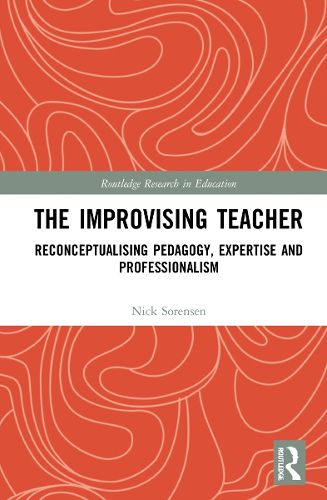Readings Newsletter
Become a Readings Member to make your shopping experience even easier.
Sign in or sign up for free!
You’re not far away from qualifying for FREE standard shipping within Australia
You’ve qualified for FREE standard shipping within Australia
The cart is loading…






The Improvising Teacher offers a radical reconceptualization of improvisation as a fundamental element of teacher expertise. Drawing on theories of improvisation and expertise alongside empirical research, the book argues that teacher expertise is fundamentally improvisatory.
The book provides a theoretical model for teacher expertise that is relevant internationally and illustrates the nature of advanced practice in a global classroom through case studies of expert teachers in England. It makes a theoretical and conceptual case to support the case for the improvising teacher as a prototype model of expert practice. Sorensen draws on critical studies in improvisation and the study of expertise and expert practice, and argues that now more than ever, teachers must be flexible, creative and skilled in adaptation. Providing a critical evaluation on how to approach the professional development of the improvising teacher, the book outlines how the improvising teacher signifies a broader cultural shift in the way we understand teaching and teacher professionalism.
This book will be essential reading for academics, researchers and postgraduate students in the fields of teacher education, professional practice, professional development and critical studies in improvisation. It will also be highly relevant for teacher educators who are attempting to understand, research and promote teacher expertise and teacher autonomy in education across the globe.
$9.00 standard shipping within Australia
FREE standard shipping within Australia for orders over $100.00
Express & International shipping calculated at checkout
The Improvising Teacher offers a radical reconceptualization of improvisation as a fundamental element of teacher expertise. Drawing on theories of improvisation and expertise alongside empirical research, the book argues that teacher expertise is fundamentally improvisatory.
The book provides a theoretical model for teacher expertise that is relevant internationally and illustrates the nature of advanced practice in a global classroom through case studies of expert teachers in England. It makes a theoretical and conceptual case to support the case for the improvising teacher as a prototype model of expert practice. Sorensen draws on critical studies in improvisation and the study of expertise and expert practice, and argues that now more than ever, teachers must be flexible, creative and skilled in adaptation. Providing a critical evaluation on how to approach the professional development of the improvising teacher, the book outlines how the improvising teacher signifies a broader cultural shift in the way we understand teaching and teacher professionalism.
This book will be essential reading for academics, researchers and postgraduate students in the fields of teacher education, professional practice, professional development and critical studies in improvisation. It will also be highly relevant for teacher educators who are attempting to understand, research and promote teacher expertise and teacher autonomy in education across the globe.